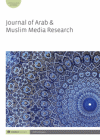
Full text loading...


It has frequently been debated that western media coverage of Islam and Muslims constructs an Orientalist image of Islam – often that Islam is a threat to the West – that sidelines and dehumanizes Muslims. However, by examining the terrorist incident that occurred in Christchurch, New Zealand in March 2019, in which 51 Muslims were killed at a Mosque, this study discursively argues that an Orientalist view was not manifest in the coverage of New Zealand’s newspapers. Focusing on two mainstream newspapers, the New Zealand Herald and The Press, this study also argues that New Zealand’s newspapers played a constructive role in their opposition to and condemnation of the terrorist attacks. This study argues that, while covering the attacks, these media outlets fully supported and reinforced the view that the people of New Zealand belong to a society of which Muslims are an essential part. The way these newspapers framed the issue, the terminology used and the metaphors they selected to construct the terrorist attack challenged Orientalist perceptions, and thereby rejected any perceived clash of civilizations. The selected newspapers were supportive of the victims, the victims’ families and the Muslim community as a whole. This study also observes that a shift in media coverage from negative to positive perceptions of Muslims is possible.

Article metrics loading...

Full text loading...
References

Publication Date:
https://doi.org/10.1386/jammr_00077_1 Published content will be available immediately after check-out or when it is released in case of a pre-order. Please make sure to be logged in to see all available purchase options.